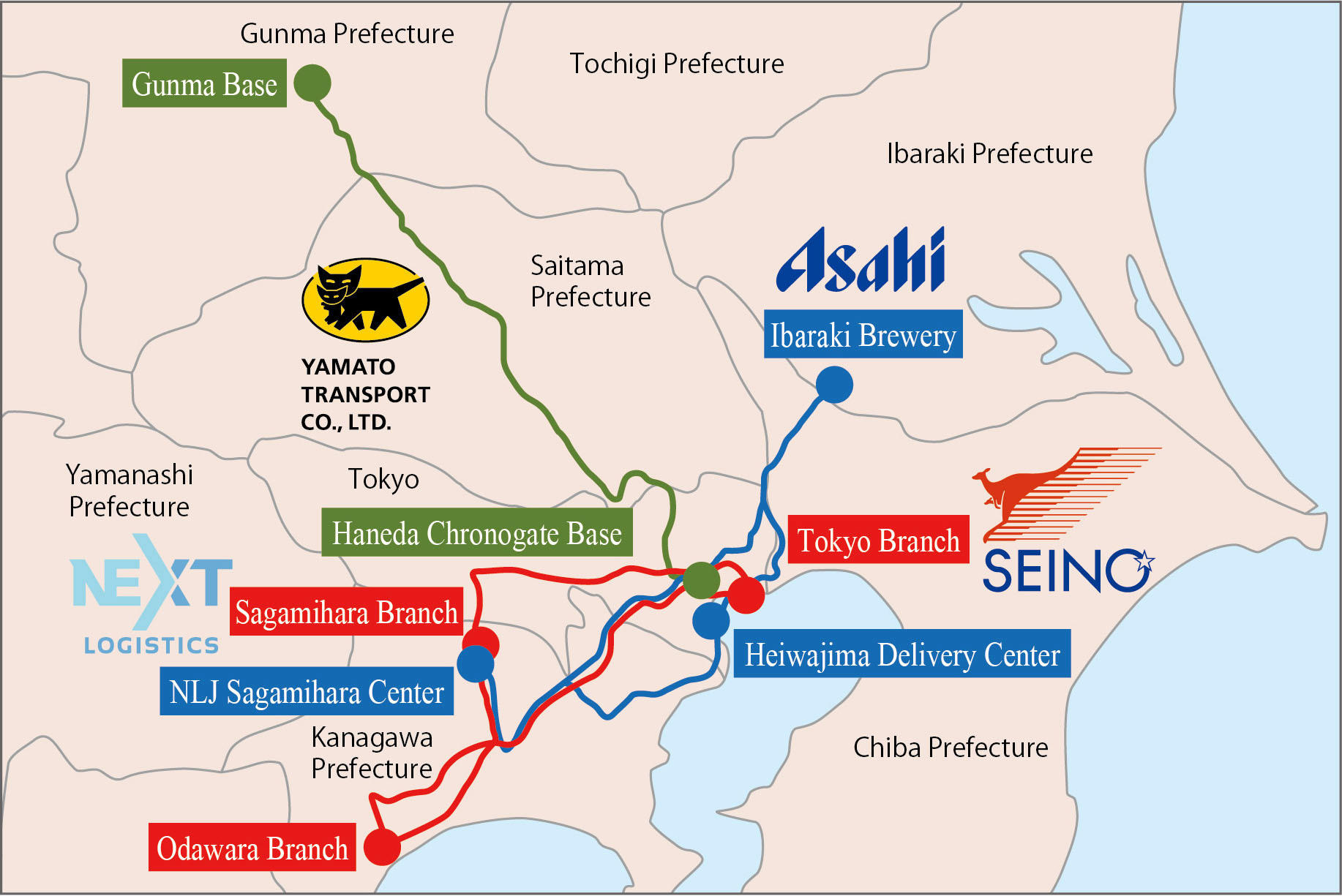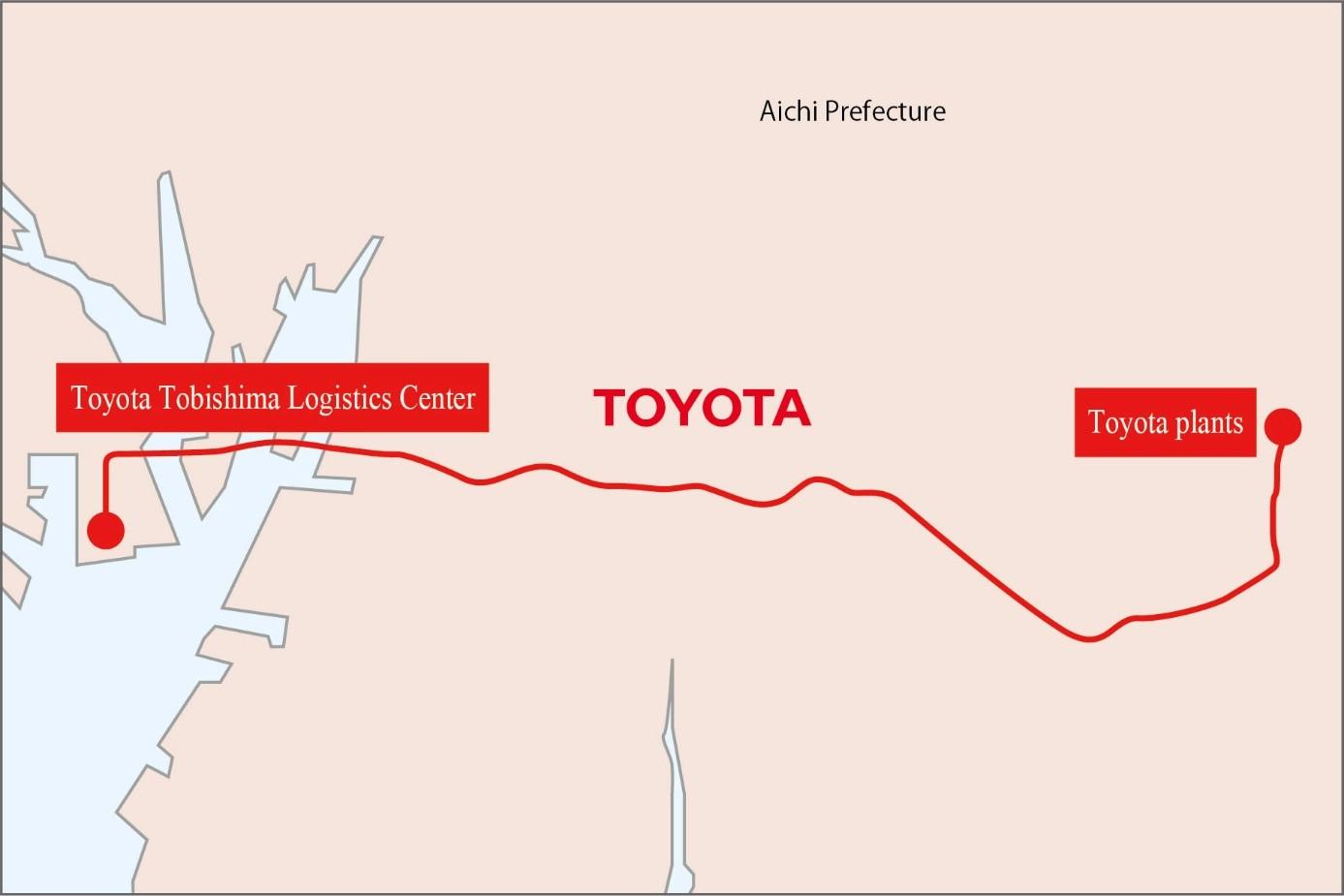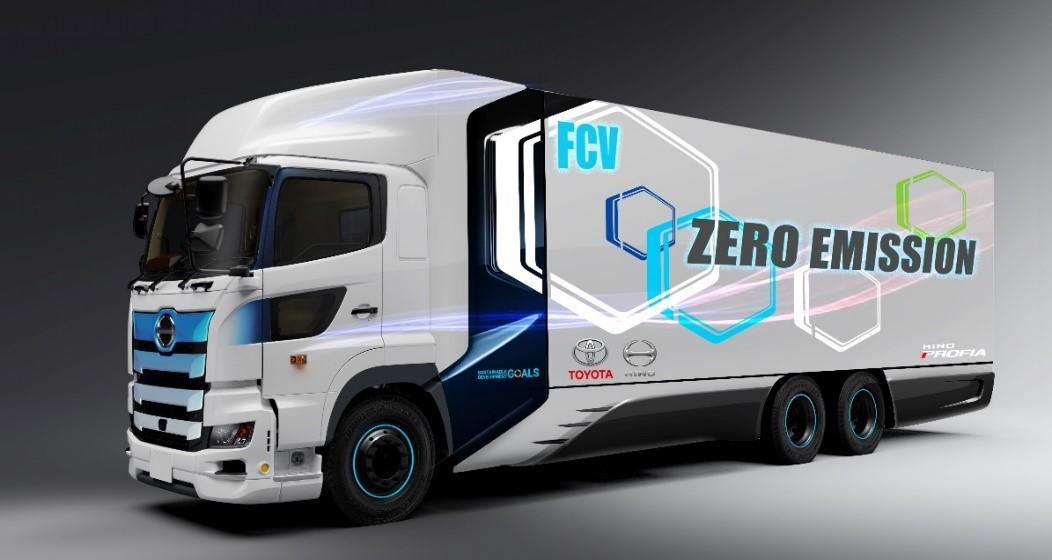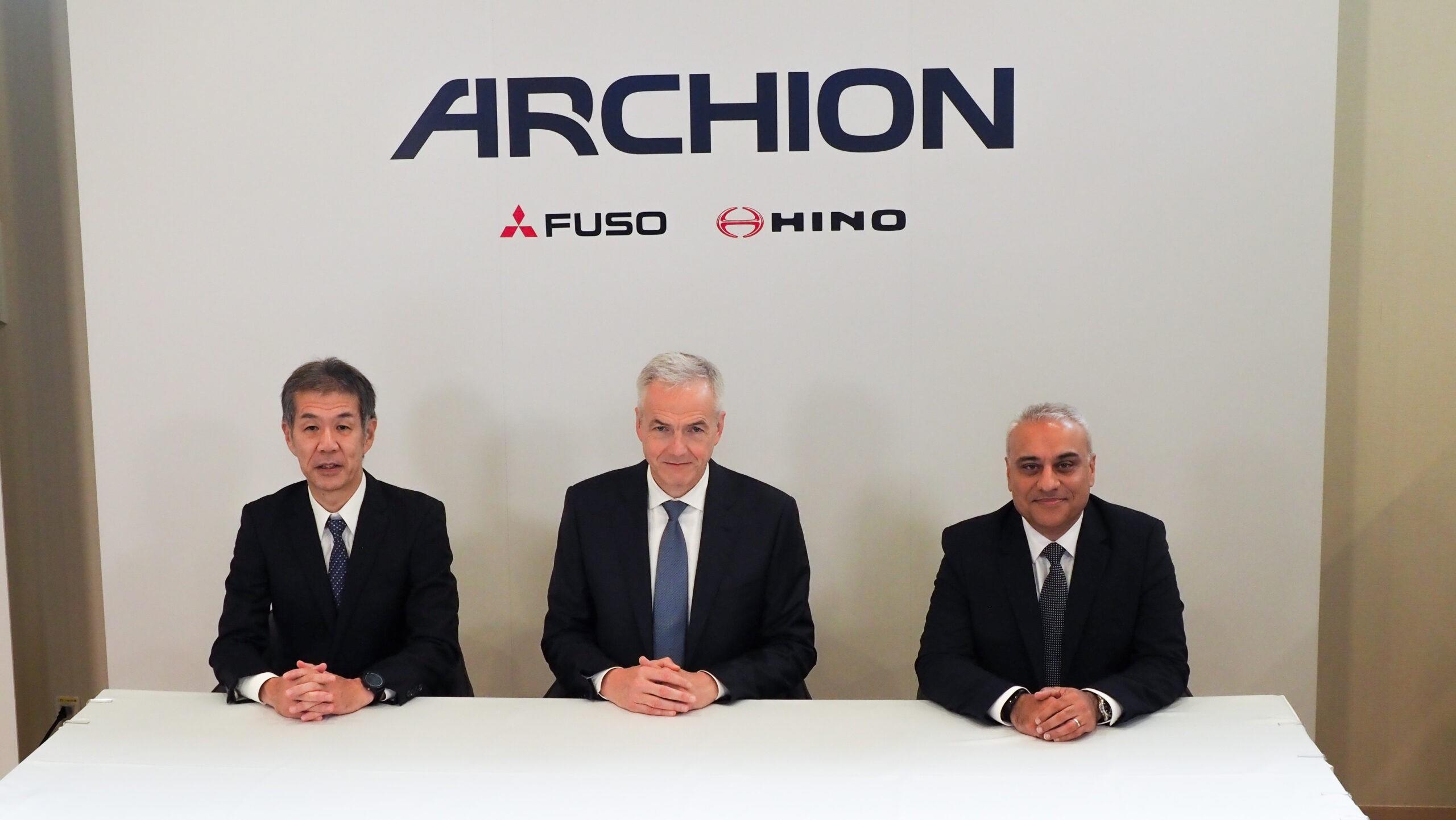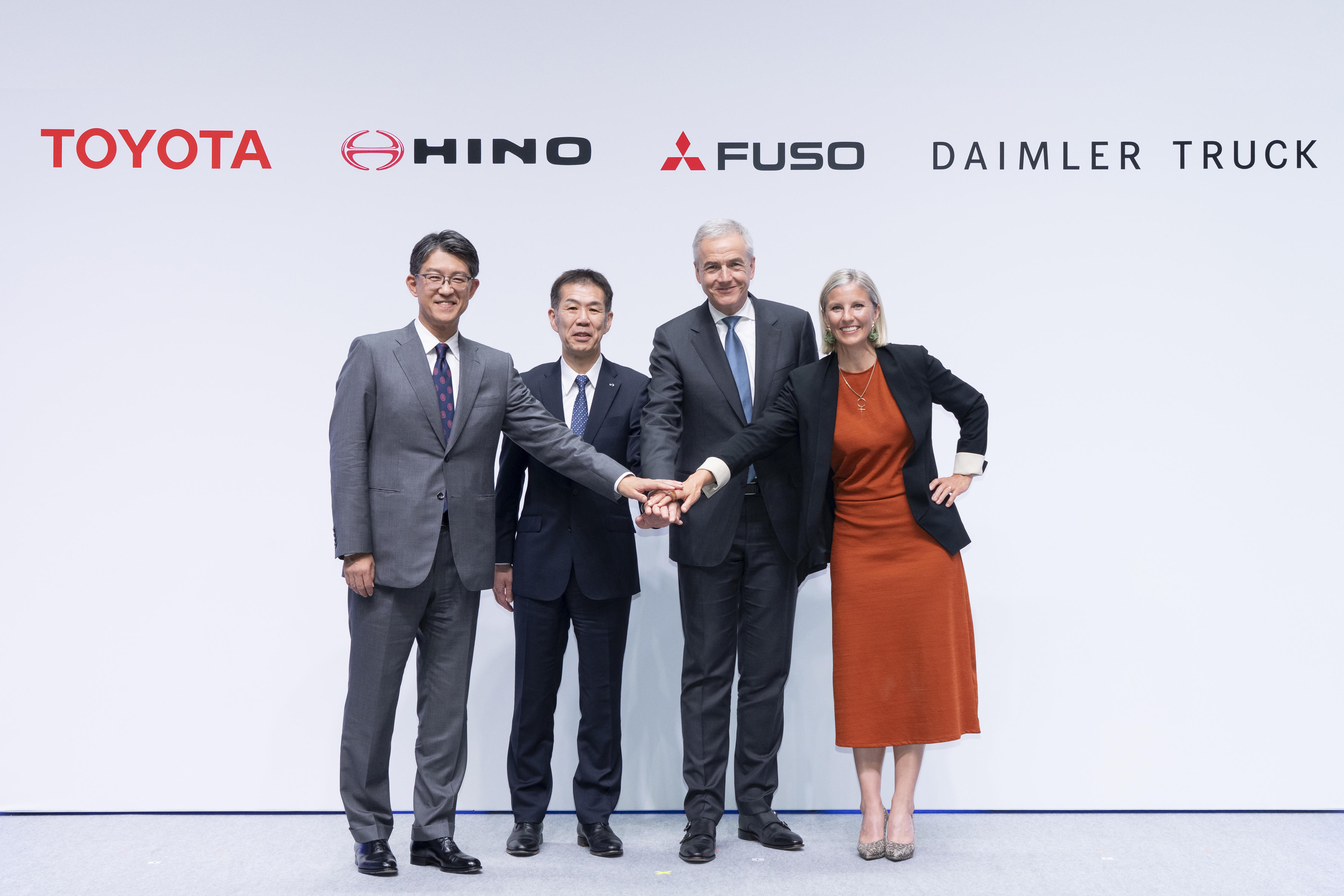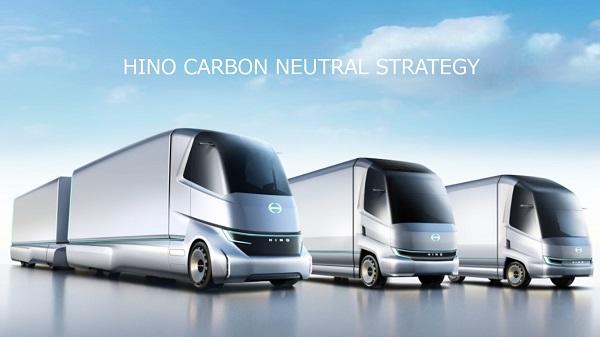Heavy-Duty Fuel Cell Electric Truck Verification Tests to Start in Spring 2022
Products & Technology
Oct 13, 2020
Tests will verify feasibility of using fuel cells to reduce CO₂ emissions in logistics
Asahi Group Holdings, Ltd.
Seino Transportation Co., Ltd.
NEXT Logistics Japan Co., Ltd.
Yamato Transport Co., Ltd.
Toyota Motor Corporation
Hino Motors, Ltd.
Asahi Group Holdings, Ltd. (Asahi Group), Seino Transportation Co., Ltd. (Seino Transportation), NEXT Logistics Japan Co., Ltd. (NLJ), Yamato Transport Co., Ltd. (Yamato Transport), Toyota Motor Corporation (Toyota), and Hino Motors, Ltd. (Hino) have agreed to conduct on-the-road trials of heavy-duty fuel cell electric trucks (heavy-duty FCETs) starting in spring of 2022, accelerating the early commercial application of heavy-duty FCETs and contributing to the development of a sustainable society. This may be achieved, at least in part, by reducing CO₂ emissions from heavy-duty FCETs, which account for approximately 70 percent of all CO₂ emissions from commercial vehicles in Japan *. Toyota and Hino are jointly developing heavy-duty FCETs, and Asahi Group, NLJ, Seino Transportation, Yamato Transport, and Toyota will perform the road trials in their logistics operations.
Overview of the Trials
(1) Scheduled start: Spring 2022
(2) Proposed transportation details and driving routes
| Asahi Group & NLJ |
Asahi Group will load the trucks with beer and soft drinks produced at its Ibaraki Brewery and whisky, spirits, wine, and other products from Asahi Breweries Heiwajima Delivery Center. The products will be unloaded at NLJ Sagamihara Center, and cargo from Kansai will be retrieved and returned to the Ibaraki Brewery. |
| Seino Transportation | Cargo will be transported from the Tokyo Branch to the Sagamihara Branch and the Odawara Branch - Tokyo Branch (Koto-ku, Tokyo) → Sagamihara Branch (Sagamihara City, Kanagawa Prefecture) → Odawara Branch (Odawara City, Kanagawa Prefecture) → Tokyo Branch |
| Yamato Transport | Transport of collected parcels and other packages between the Haneda Chronogate Base* and the Gunma Base* - Haneda Chronogate Base (Ota-ku, Tokyo) ⇔ Gunma Base (Maebashi City, Gunma Prefecture) * A base is a facility that functions as a parcel sorting and highway transportation hub. |
| Toyota | Transportation of parts between Toyota plants in Aichi Prefecture and Toyota Tobishima Logistics Center - Toyota plants (Aichi Prefecture) ⇔ Toyota Tobishima Logistics Center (Nagoya Port) |
(3) Logistics operation Map
<For reference> Vehicle outline
| Vehicle | Base model | Hino Profia FR1AWHG |
| Length / width / height | 11,990/2,490/3,780 mm | |
| Total vehicle weight | 25t | |
| FC stack | Name (type) | Toyota FC Stack (Polymer electrolyte fuel cell) |
| Motor | Type | AC synchronous |
| High-pressure hydrogen tank | Developing a new large capacity high pressure (70MPa) hydrogen tank | |
| Battery | Type | Lithium ion battery |
| Cruising range (proposed) |
Approx. 600 km * in integrated city and highway driving cycle; Toyota and Hino internal measurements) |
|
The heavy-duty FCETs used in highway transportation must have adequate range and load capacity as well as being able to refuel quickly. Fuel cell systems, which are powered by high-energy-density hydrogen, are believed to be effective for the electrification of heavy-duty trucks. The heavy-duty FCETs that will be developed are anticipated to have a target range of approximately 600 km. The objective is to meet high standards for both environmental performance and practicality as a commercial vehicle.
Each of the companies participating in the trials have positioned global environmental issues as key management issues, and are taking various actions including reducing energy consumption in manufacturing processes and reducing environmental impact in logistics operations. Going forward, each company will accelerate its efforts for early practical application of heavy-duty FCETs with the aim of contributing to the development of a sustainable society.
* Trucks and buses with gross vehicle weight of over 3.5 tons, according to research by Hino, as of September 30, 2020.

